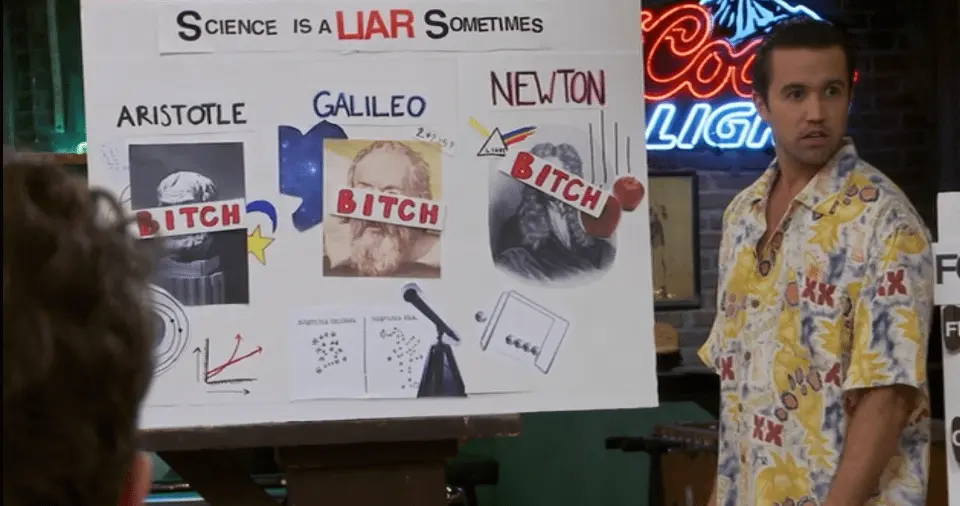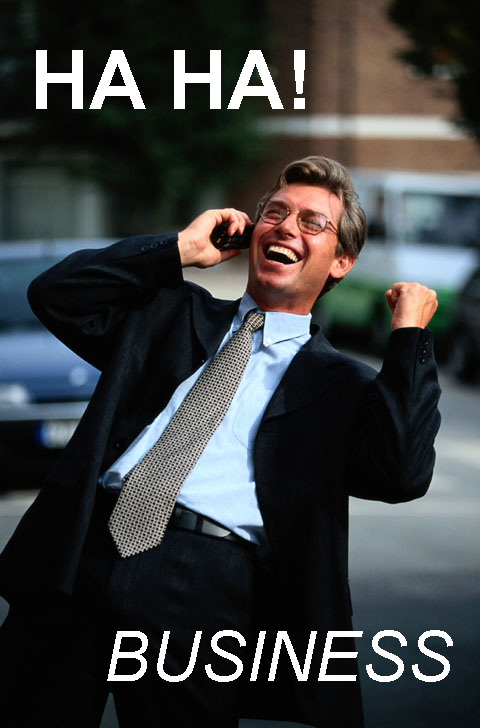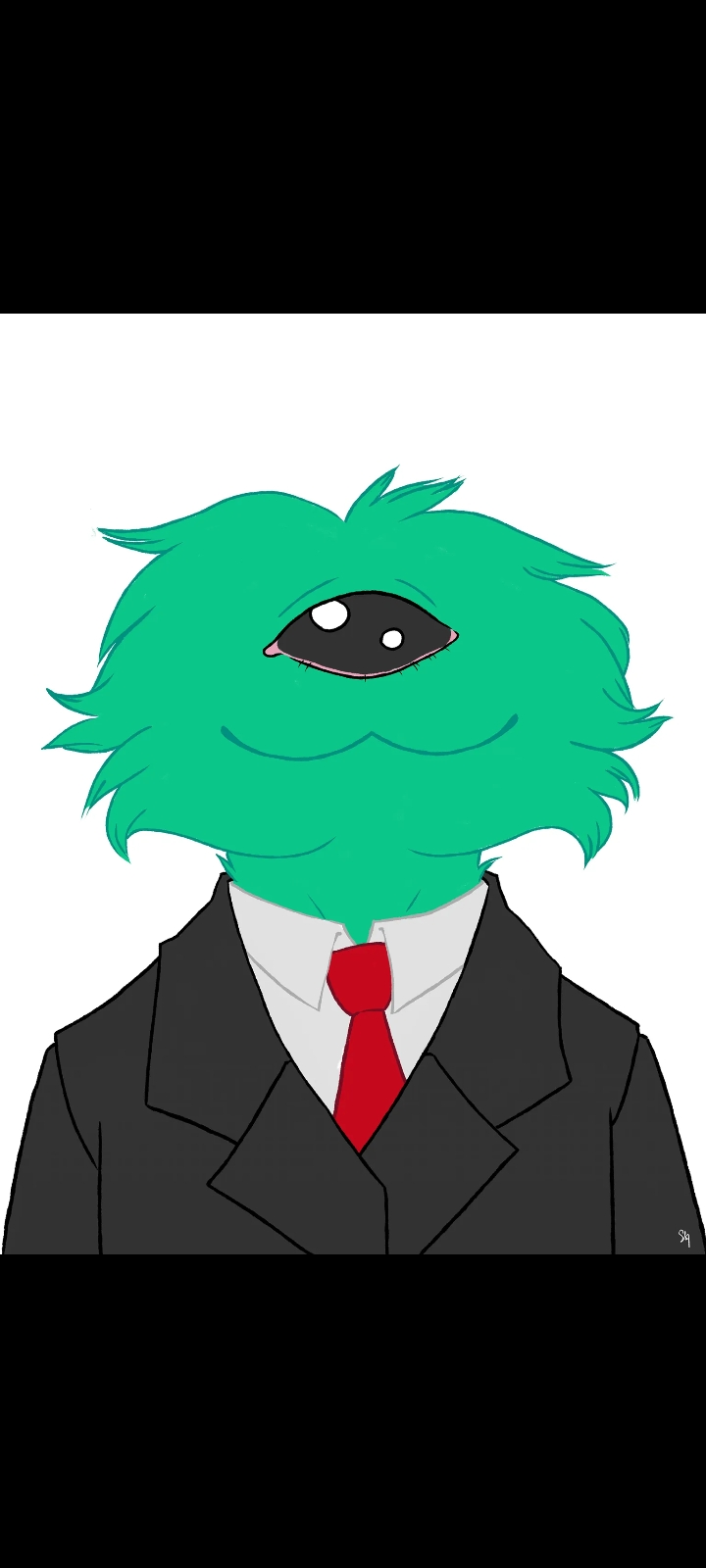
I once had a colleague who was raised to live by the bible, never questioning it. He was also a massive shitposter. No matter what dumb shit he said, he’d always say that it was just a joke.
Well, one of the few times when I genuinely caught him off guard, was when I explained that science did not actually claim to know the one and only truth. That it wanted to be proven wrong.
I think, that idea itself conflicted with his whole world view. Like, I imagine, his parents also raised him to never question their authority.

As a young scientist who’s yet to gain PhD:
Absolutely do challenge scientists, no matter your qualification. Sometimes (granted, that’s rare) you might be right.
Just do it in a respectful way and make sure you check your arguments.
Also, while scientists are generally more educated overall, they can absolutely be foolish in what falls outside their scope. “I’m a scientist” is not a valid argument.
And yes, always check for a conflict of interest.

It’s always important to remember that something can be obvious to a layman, but be considered ridiculous by an expert, as the expert’s view is likely rigid and unlikely to deviate from their experience.
This does not mean experts are morons (They’re considered experts for a damn good reason). it simply means an outsider perspective can be valuable from time to time.

Exactly!

I am kind of a scientist myself.

It’s not entirely wrong. There is absolutely a bias in what gets studied simply because it requires money to be given to study most things. For example, it’s why some more natural remedies like taking fish oil to help lower cholesterol took so long to have actual scientific backing; there’s no money in widely available remedies so finding funding to do the study was difficult.
You can see this really clearly if you look at more politicized areas, like economics. And for what it’s worth, it doesn’t mean that the evidence that’s generated is bad (although the conclusions drawn from it may be), but that it results in a lack of evidence for opposing viewpoints.

There absolutely is more money to be made in natural remedies, these days. People are selling chakra activating light emitting bracelets online citing studies that find no physical evidence of chakras. We live in a mad world.


Haha I love this

The part which annoys me is about intentions.
Sure, lobby groups do pay off some people with a PhD to lie for them (Patrick Moore), that’s not up for debate.
But to imply that this is the norm is just ignorant of how research is conducted.
Most scientists are either employed by a company, working towards a very specific, non contentious goal (like developing cold fusion), or are involved in research at a university, paid for in grants by their government to research whatever has been approved as worthy of investigation.
Nobody is pressuring these researchers to find evidence to support any particular agenda, the chips land where they fall. There’s no fat cat smoking a cigar telling the climate science team at their local university that they need to find more evidence to crash the petrol stocks so they can sell more solar panels.

I mean… Science does sometimes lie. Plenty of research papers out there with fudged results or questionable methodology. Also the fact that scientists don’t always agree with each other on things.
You should always question authority. Just don’t question the truth once it’s actually been proven.

I completely agree, heck there’s also times when all the science is done perfectly but the result is incorrect because the people interpreting the data got Cause and Effect backwards… Or worse, when the data checks out, but violates the current paradigm so much that the academia of the time rejects it out of principle alone and refuses to acknowledge you. (This literally happened when we discovered germs, and the first person to pitch the idea of the Big Bang was mocked over how “religious” the idea sounded, so yes, there’s precedent for this shit.)

Question the proven truth all the time,cas long as you’re not fighting against observations and evidence

as long as you’re not fighting against observations and evidence without additional observations and evidence.
Observations and evidence could be non-maliciously incorrect. New observations could be made that invalidate the old after another change in our perception occurs.
Observations and evidence just show to the best of our abilities at the moment.

While conflicts of interest can and do exist, a lot of, if not most, science is done by grad students who are just trying to get their degree and are really there because they are passionate about discovering new things more than anything else.

I don’t think a study like “Aspartame is actually super good for you and makes you run faster” funded by the “American Beverage Association” would ever make it to Theory status, and even concieving of such a silly notion reveals widespread misunderstanding of what a theory is.

“The Science is settled” and “I believe in Science” are both equally frightening sentences.

Though the first is abused to death, yes, I vehemently disagree with the second. I do believe in science. Just because here and there there are cheaters doesn’t mean that science is valid. Cheaters eventually get caught and science continues. Because of science you have that phone in your hand on which you write your post and read my comment, because of science you are alive. Science is trying to find out what is and why.
I believe in science and there is nothing scary about that.

I think you missed the point, I believe in the Scientific Method as one of the best ways to measure that which is objectively true. It can make no statements on the subjective however, nor the metaphysical.
However the problem is, too many people act as though we’ve reached the limits of what is possible to know with the sciences and treat it to be “Science’s Infalliable Word”, when the very nature of Science means we’ll gladly throw out anything we already “know” to be true if we find conflicting evidence, and the world has been better off for it.
Heck the definition of “Dead” has changed several times because we keep learning that it’s more like a spectrum than an on and off switch, which has so many implications that it makes my head hurt.

I know that scientific knowledge gets updated all the time and with that, things sometimes change. That is fine, but at the same time you use what we have up to that point. If today scientific knowledge tells us that eating worms is healthy, we will do that more. If tomorrow it turns out that, oops, it’s healthy on the left but unhealthy on the right, well stop eating them.
Either way, we go with what science has discovered so far. That is my point. Too many people these days don’t understand how these discoveries are made and as such push against it.
This is how you get anti vaxxers who are hell bent on destroying humanity while thinking they are saving it. This is how you get flat-earthers.
Screw that, people need to learn in school how science works, how we get where we are with our knowledge, where that knowledge comes from. They need to learn the scientific method.
Then of course there are places like Texas where they keep shoving bibles in the schools to ensure kids stay dumb, gotta get them to vote against their own needs somehow…

That’s literally the opposite of what “theory” means in a scientific context. You know nothing of science and your opinion is wrong.

Sure, science is great and has lead to several great advancements. Science is done by people.
People will lie, cheat, and steal.
Big little lies: a compendium and simulation of p-hacking strategies
In an academic system that promotes a ‘publish or perish’ culture, researchers are incentivized to exploit degrees of freedom in their design, analysis and reporting practices to obtain publishable outcomes [1]. In many empirical research fields, the widespread use of such questionable research practices has damaged the credibility of research results [2–5].
A recent Retraction Watch investigation allegedly identified more than 30 such editors, and kickbacks of as much as US$20,000. Academic publisher Elsevier has confirmed its editors are offered cash to accept manuscripts every single week. The British regulator said in January that one unnamed publisher “had to sack 300 editors for manipulative behaviour”.
AI Chatbots Have Thoroughly Infiltrated Scientific Publishing
At least 60,000 papers—slightly more than 1 percent of all scientific articles published globally last year—may have used an LLM, according to Gray’s analysis, which was released on the preprint server arXiv.org and has yet to be peer-reviewed
It’s important not deify science instead realize that it has issues. We should address those issues to help science become the ideals that we want believe science to have.
Edit: Missed a word

Also: https://xkcd.com/882/
It doesn’t have to be corruption.

Yes, science is about finding the truth, but we should relish the chance to challenge it. If it holds up, that only strengthens the argument for it. If it doesn’t, everyone learned something new.

Except whenever I see a non scientist challenge science, it’s never with any rigor or substance. They’ll literally be measuring angles off of an example figure posted in a news article as their argument. If you want to help push science forward, you can’t just play gotcha on social media; you actually need to be able to do the math, and show your work.

You certainly aren’t wrong.
- intensely_human ( @intensely_human@lemm.ee ) English12•4 months ago
Science is not the truth. Science is a mechanism for finding the truth.

What is truth?
If you take a materialist philosophical view, maybe you can arrive at some kind of understanding of the universe through the scientific method.
If you have other views things get far more complicated.
I’m a materialist atheist btw but delving into philosophy makes me less certain we can ever arrive at ‘truth’.

That’s not even fully accurate because the scientists are doing the studies and achieving results that the companies don’t like, so the companies bury it.

I love how the Internet knows more than doctors.

